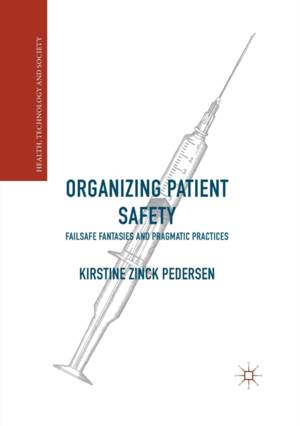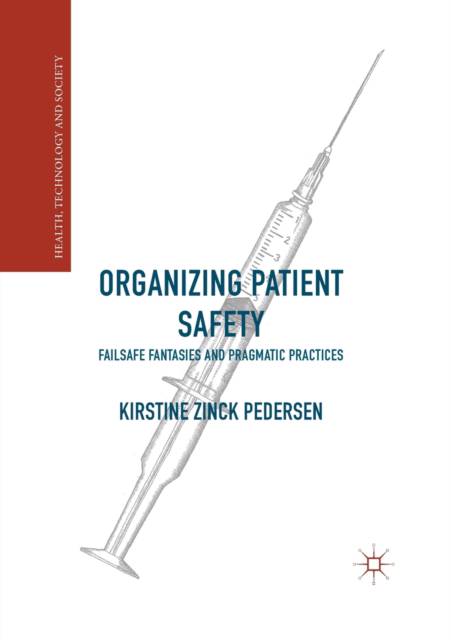
- Retrait gratuit dans votre magasin Club
- 7.000.000 titres dans notre catalogue
- Payer en toute sécurité
- Toujours un magasin près de chez vous
- Retrait gratuit dans votre magasin Club
- 7.000.0000 titres dans notre catalogue
- Payer en toute sécurité
- Toujours un magasin près de chez vous
106,95 €
+ 213 points
Format
Description
This book examines the organizational consequences of the recent international preoccupation with managing patient safety in the clinic. Built on presuppositions about failsafe system-design, risk elimination, and human fallibility, the patient safety programme introduces new problems and safety threats in clinical practice by devaluing practical forms of reasoning and the trained safety dispositions of clinicians.
Developing a pragmatic and more situated stance on patient safety, Pedersen offers an alternative vocabulary that refocuses attention towards the importance of conduct, habits and experience-based learning in delivering safe care. This innovative book will be of great interest to scholars and practitioners of organization and risk studies, health, science and technology studies and the wider social and medical sciences.
Developing a pragmatic and more situated stance on patient safety, Pedersen offers an alternative vocabulary that refocuses attention towards the importance of conduct, habits and experience-based learning in delivering safe care. This innovative book will be of great interest to scholars and practitioners of organization and risk studies, health, science and technology studies and the wider social and medical sciences.
Spécifications
Parties prenantes
- Auteur(s) :
- Editeur:
Contenu
- Nombre de pages :
- 279
- Langue:
- Anglais
- Collection :
Caractéristiques
- EAN:
- 9781349711277
- Date de parution :
- 23-12-19
- Format:
- Livre broché
- Format numérique:
- Trade paperback (VS)
- Dimensions :
- 148 mm x 210 mm
- Poids :
- 399 g

Les avis
Nous publions uniquement les avis qui respectent les conditions requises. Consultez nos conditions pour les avis.






